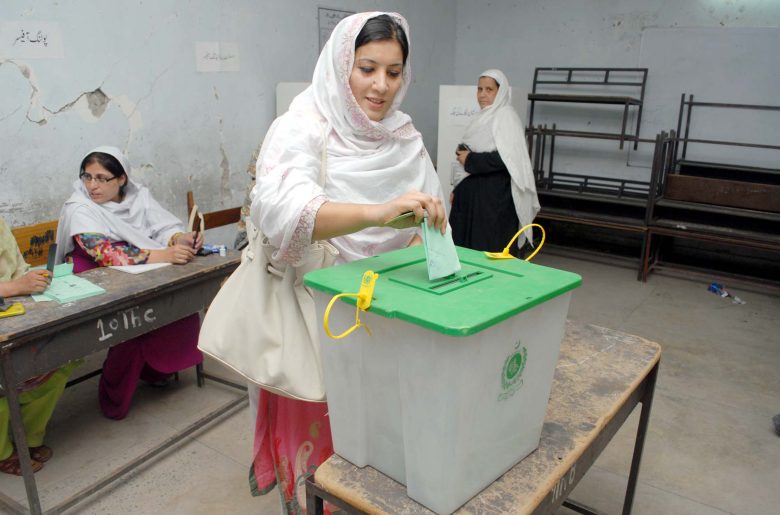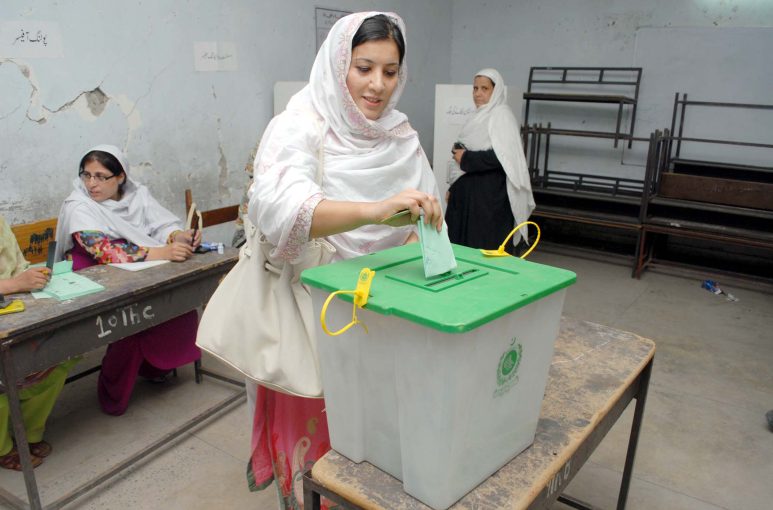By Saba Chaudhary, independent journalist and activist
2024 is a tense election year for many of the biggest democratic countries around the globe, with democracy itself at stake. Billions of people will exercise their right to vote, however, this time the fate of democracy in many countries is not only in the hands of voters but also in the hands of Artificial Intelligence (AI).

The confused voter and AI disinformation
AI generated images, videos, and audio files are dominating online political campaigns. The evolving technology possesses the potential to skew political discourse and threaten diversity, because not every voter is certain about online distributed political manifestos, online political ads, or what their leader is saying on the internet is true or false. Not everyone can tell what is real and what is fake.
AI is used in political campaigns in India and Pakistan. In India, it generated reels of the Prime Minister Narendra Modī which were being shared by Instagram account name ai_whizwires. The purpose of the reel could be to micro target the voters of a specific rural area by the virtue of its sensationalism and attention-grabbing nature. This approach, along with trolling a popular politician, is influencing local voters’ perceptions of a candidate, influencing their ability to make informed decisions.
According to 2023 data, the digital media literacy rate in rural areas of India is only 25%, yet the number of internet users in rural India is about 399 million.
AI and elections in Pakistan
A clip viewed over 2 million times on TikTok claimed to show the former prime minister of Pakistan Imran Khan holding Jalsa (rally) behind bars. The video was misleading and generated by technology. Fact checkers later shared that a video verification tool found “that the clip circulating online had several inconsistencies’’. Images and videos have appeared regularly claiming to show former Prime Minister Imran Khan’s condition in prison. The purpose of the videos was also to increase support in favor of Khan by proving him a pious leader and innocent. Some videos and images were also spread showing him weak, not eating anything, or in a bad condition in jail. All of those were AI generated and fake. When Khan’s party was sharing deceptive AI videos ‘’common people in Pakistan were the victims of their disinformation,’’ claims Nighat Dad, a digital rights activist.
Fake videos in Pakistan were not just used in the run-up to the vote, they continued to be shared after the elections. Before election results were officially announced, again an artificial generated victory speech was shared by the party claiming Khan won the elections. In the video Khan’s physical appearance was from a genuine video clip, but his voice and speech were AI generated.
The propagation of AI deceptive fake news, images and videos not only confused the public but also increased polarisation.
Combating Ai during elections
Yasal Munim, a media development professional and senior program manager at Media Matters for Democracy said: ‘’AI-generated content isn’t just aimed at spreading disinformation or maligning political opponents but influencing voting patterns of people or their perceptions of a politician”.
Talking about impact of AI on free and fair elections Munim said, “We live in a world where misinformation is quite prevalent and in such an environment AI-generated content definitely impacts the scale and speed at which disinformation could be spread, and thereby accelerate the process with which false information is produced and dispersed. AI tools and their accessibility at minimum cost has made it quite easy for people to use them to generate all sorts of images, videos and even audio clips of politicians’.”
When it comes to combat this misinformation, she says, “ we (at Media Matters for Democracy) have developed a tool called ‘Factor’ aimed at pre-bunking misinformation before it goes viral and this is specifically for newsrooms across Pakistan. We realize the spread and scale of misinformation especially right around elections and hope to empower journalists in Pakistan in countering disinformation”.
She added that the role of Big Tech and social media companies in the spread of disinformation online should not be ignored. ”Meta and Twitter have taken certain steps to counter them and continue to add context to a particular misinformation because the algorithm is biased towards English content as we don’t see the same treatment of content available in Urdu, and other languages of the Global South”.
Big Teach have been profiting from disinformation on their platforms, and it’s about time they make their policies more transparent especially related to political advertising to prevent more disinformation online.
Picture – shutterstock.com
Disclaimer:
The views and opinions expressed in this article are solely those of the author and do not reflect the official policy or position of the Media Diversity Institute.Any question or comment should be addressed to editor@media-diversity.org

